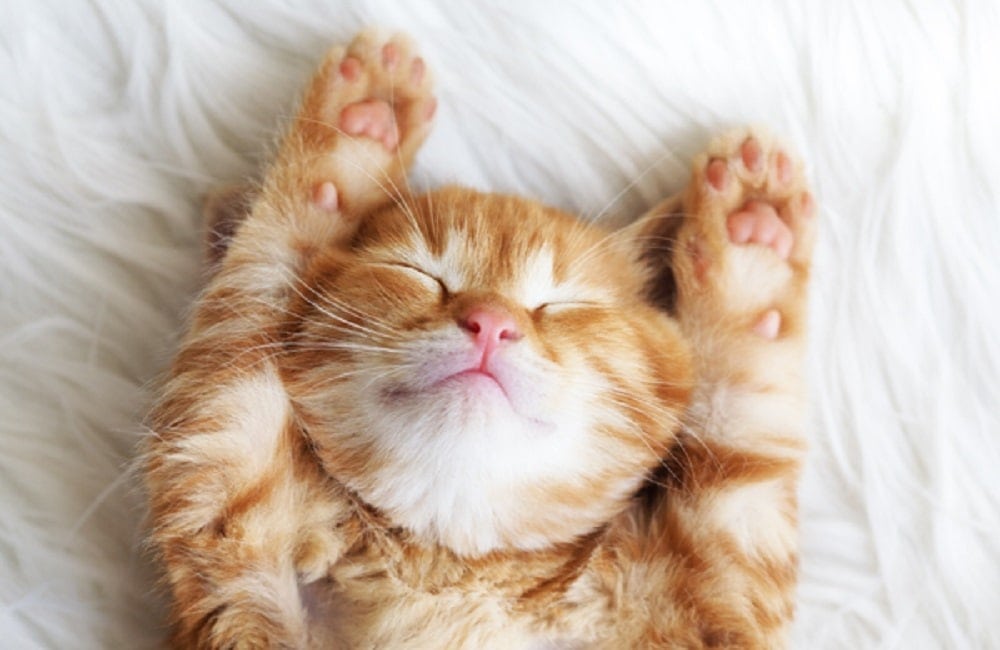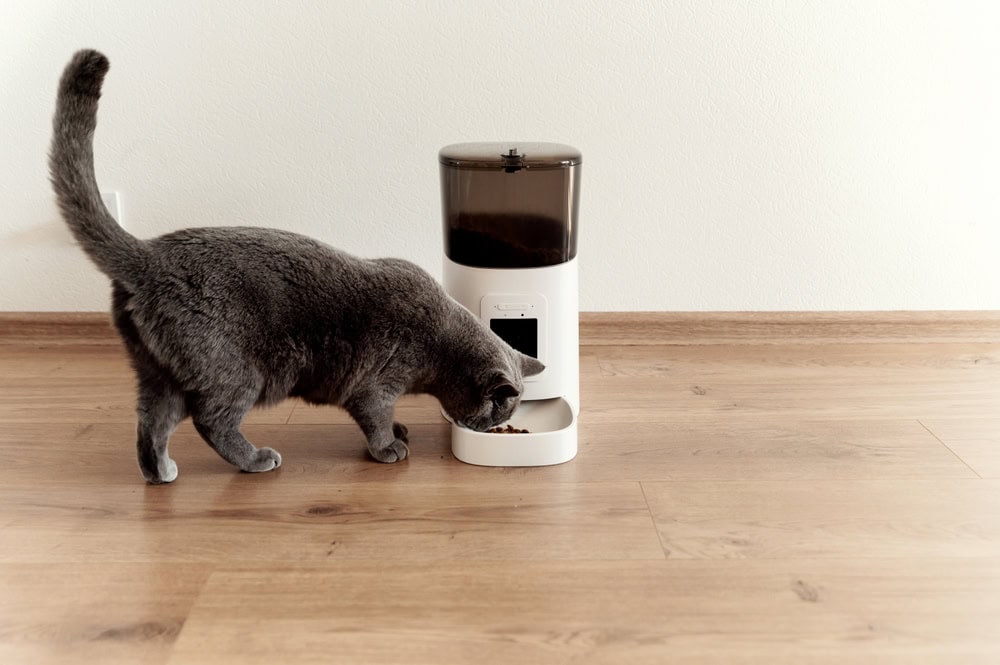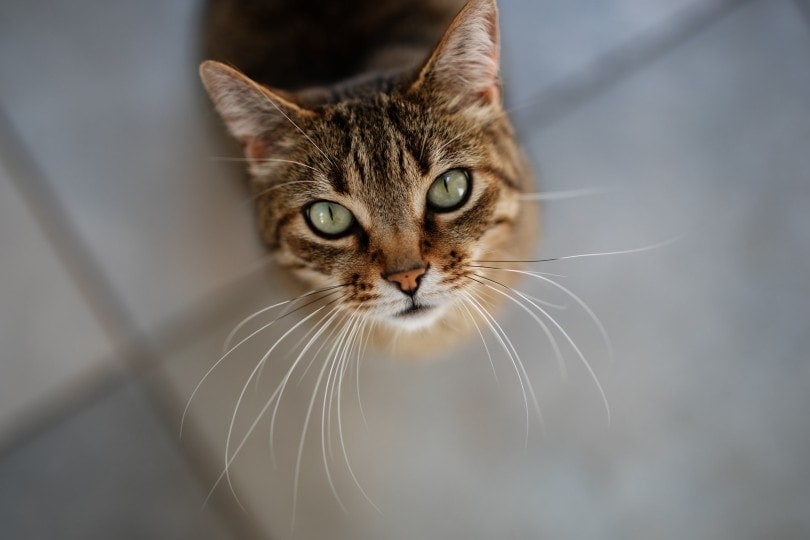10 Cat Food Trends to Watch in 2024
By Ashley Bates
Updated on
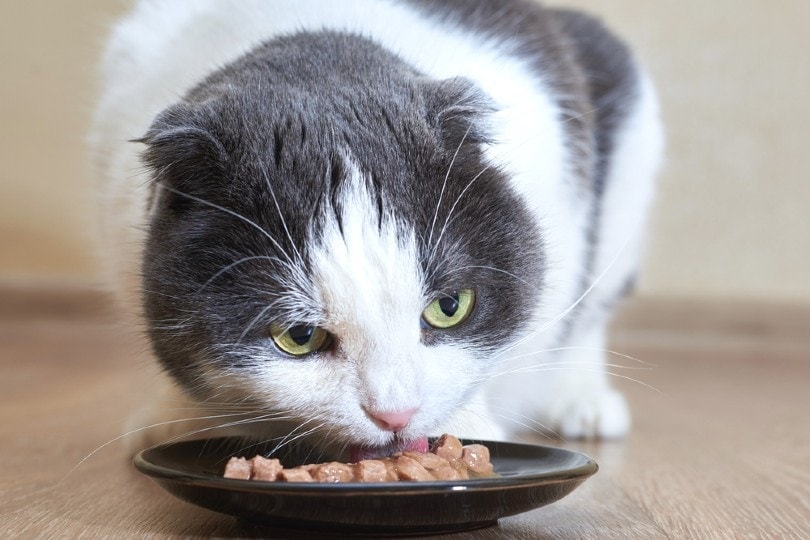
The pet food industry seems to constantly ebb and flow to meet the needs of our furry, scaly, and feathery friends. Cat food is no exception. There are so many advancements in dietary research due to constant nutritional studies being conducted to keep cats healthy and increase their lifespans. If you’re trying to stay up on all the happenings to see if a new diet trend might work for your feline, we’re here to give you the 411. Keep reading for all the details of the trends in cat food.
The 10 Cat Food Trends to Watch in 2024
1. Reduction in High Heat
Many dry and wet dog foods undergo high heat during production. While this is necessary for some recipes, it destroys a lot of the nutritional value in the process. To combat killing these otherwise beneficial components, companies are starting to reduce heat to preserve nutrients. By not overheating, these ingredients keep their potency, delivering valuable nutrients to the body.
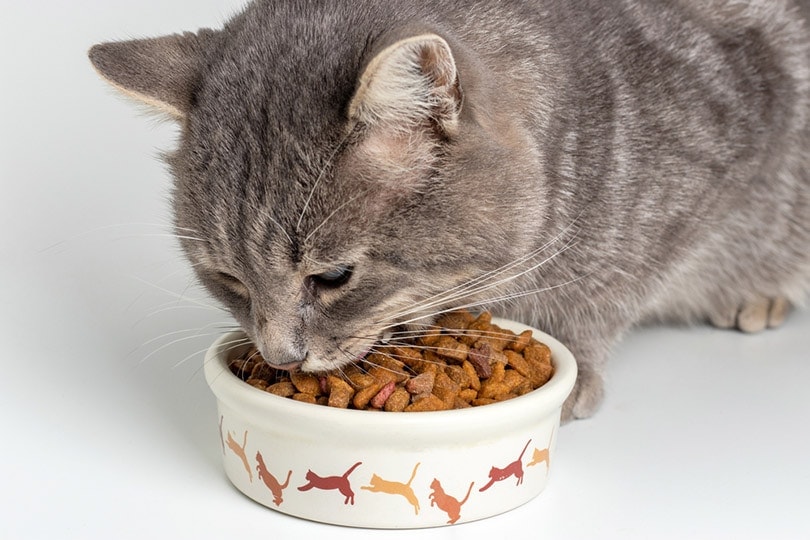
2. Raw and Homemade Foods
We’ve seen the fad of raw and homemade cat foods rising in popularity over the passing years. These foods have a lot of what pet owners try to gain from cat nutrition. Raw diets are more based on the natural ingredients your cat would enjoy in the wild. It’s a healthier way for your cat to reap all the benefits of animal contents, fully indulging in whole proteins and correct levels of naturally occurring amino acids.
Homemade diets are a truly amazing option for you to try for your feline this year, since you can control all of the ingredients put into their bowls. This meal style is perfect for everyday wellness, but it’s also a really good option if you have a cat with certain dietary restrictions. Sometimes, hidden ingredients in commercial food can trigger reactions even when you have a limited-ingredient diet. Many owners find it easier to control side effects by making the food themselves.
We recommend checking any recipe you plan to use with your veterinarian. They can make any necessary tweaks while making sure the formula meets nutrient profile criteria.
3. Steam Sterilization
With the reduction in heat in many recipes, there needs to be a way to ensure all ingredients are safe. If certain things are undercooked, they can carry harmful bacteria. Rather than using high heat to finish the packaging process, companies are adapting human-grade steam sterilization processes to keep recipes as fresh as possible while also keeping them safe for consumption. This process is still in the making, so they haven’t mastered it quite yet—and many companies are still not using this method. It will take revamping some old ways of production, which requires planning and money. But hopefully, it will be more common practice as time goes on.
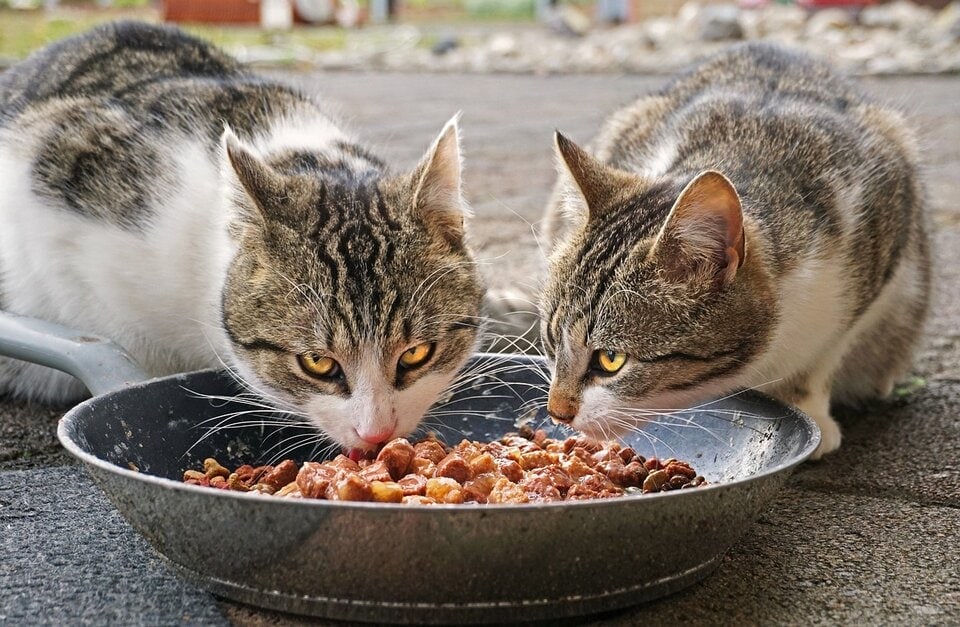
4. Short Ingredient Lists
Many pet owners would agree that the fewer ingredients there are in cat food, the better. However, as with anything else, you should research to see if the food meets all the nutritional profiles necessary for feline development and maintenance. It can be a lot easier to weed out poor-quality ingredients or irritants in your cat’s diet. Limited-ingredient diets have been on the market for a while, but the options have expanded to now cater to all sorts of different dietary needs.
5. Whole Ingredients
Whole ingredients can be a very important thing when you consider pet food of any kind. They point to healthier digestion, reaping the benefits of all the additives therein. When your cat food has whole ingredients, everything is in a much purer form, which means your cat is getting the correct nutrients from the additives used in the recipe.
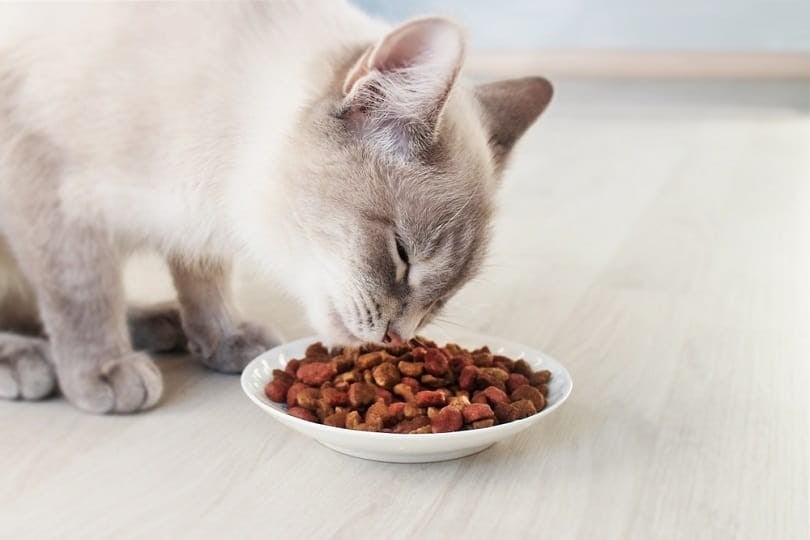
6. Filler & Grain-Free Foods
Over time, more nutritionists have proven that cats don’t need grain in their diets. In fact, they typically thrive much better without them. Unlike dogs, cats are obligate carnivores. So, having fillers like corn, wheat, soy, barley, oatmeal, and other grains isn’t really necessary.
That said, there has been some recent controversy over the safety of grain-free recipes for pets. Many studies began linking grain-free recipes with heart problems. Luckily for cats, though less lucky for dogs, these issues only seem present in canines. Cats can benefit from grain-free options, particularly if they have a grain allergy. However, this issue is very rare in terms of what triggers allergic reactions in cats.
So, the verdict is that there is no extreme benefit or negative impact on cats eating grain-inclusive or grain-free formulas. In any case, many companies are phasing out artificial and synthetic ingredients for a healthier dining experience.
7. Novel & Hydrolyzed Proteins
Some cats have trouble breaking down common proteins found in commercial cat food. Proteins like chicken, fish, and beef can often have a negative impact on the digestive system, causing allergies. Novel proteins are proteins that have never been introduced into your cat’s diet—so, put simply, they are new proteins. Since they have never entered your cat’s digestive system, they are less likely to spark an issue. Hydrolyzed proteins can be common, but they are broken down into microscopic bits to essentially bypass the digestive system. Since the cat’s body doesn’t recognize them, it doesn’t attack these proteins.
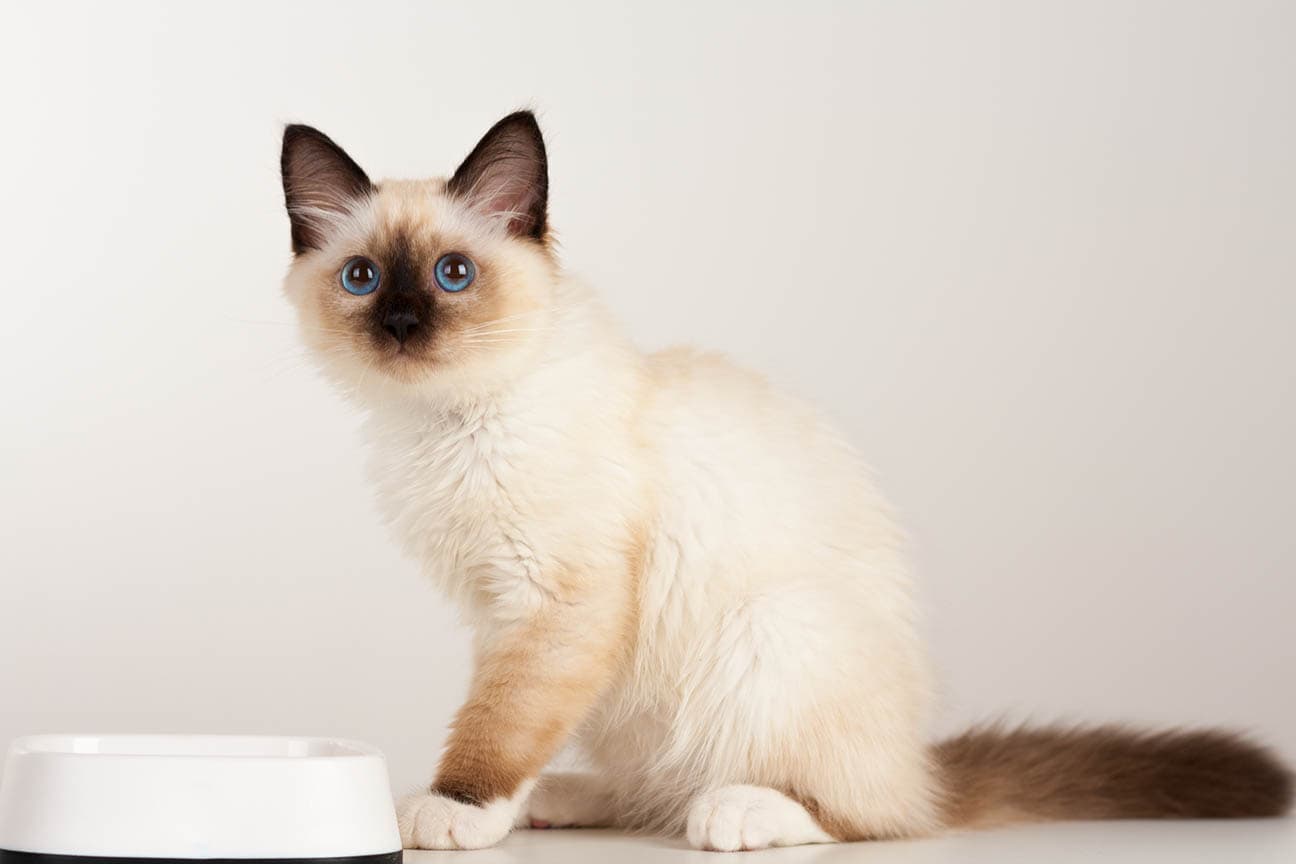
8. Organic Foods
The number of organic foods is increasingly growing. Many owners want their cats to have only beneficial meals to offer their feline, with the hope of lessening health issues and generating a longer lifespan. Cats seem to be better off without synthetic hormones, artificial dyes, chemicals, and preservatives in their diets. Most organic foods come with totally transparent and traceable ingredients, but you should get to know your cat food labels.
9. Supplements
There are tons of supplements on the cat food market that can improve your feline’s overall health. Supplements are fantastic in the sense that they can give your cat a boost that they could desperately need. The type of supplement that you buy for your cat will vary depending on their needs. Some are comparable to a multivitamin in humans, giving your kitty an extra dose of general nutrition. Others are specialized in treating a particular issue.
Your vet might recommend specific supplements if your cat develops any health issues. Even if they don’t, you should still check with them before you offer any supplement to your cat.
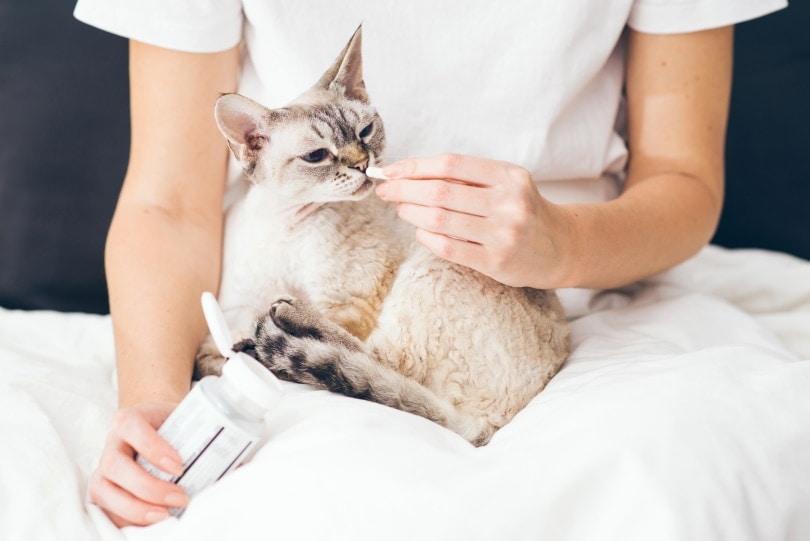
10. Online Purchases
There is an ever-increasing trend in online shopping. The influx of pet sites like Chewy makes it easier than ever. You can even sign up for auto-ship options, where your card is automatically debited and items are shipped to you on a timed schedule. Online purchases make shopping convenient, taking out any extra trips to pet shops while you’re out and about. There are tons of perks—plus, you get lots of added options and variety that might not be local to your area.
 Conclusion
Conclusion
As cat food trends grow, develop, and change, it’s best to know your options. After all, the more time goes on, the more science understands the unique needs of our feline friends, and the more we can accommodate accordingly. Plus, there are also options to make our buying experiences better these days. Make sure to ask your vet before adding any supplements or making any drastic changes to your cat’s diet.
See Also:
Featured Image Credit: osobystist, Shutterstock

